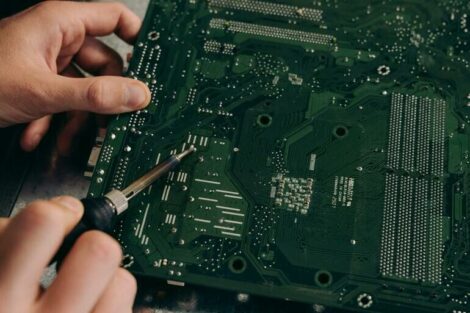The EU Parliament and 27 member states have reached a provisional political agreement on the regulation known as the EU Chips Act, designed to strengthen Europe‘s semiconductor ecosystem and reduce the region‘s dependency on Asian suppliers. The legislation agreed on 18 April 2023 comprises plans to mobilise more than EUR 43 billion in public and private investments with the aim of developing an industrial base that can double the EU’s global market share in semiconductors from 10% to at least 20% by 2030.
“This agreement is of utmost importance for the green and digital transition while securing the EU’s resilience in turbulent times,” said Ebba Busch, Swedish Minister for Energy, Business and Industry and Deputy Prime Minister. “The new rules represent a real revolution for Europe in the key sector of semiconductors. A swift implementation of today’s agreement will transform; our dependency into market leadership; our vulnerability into sovereignty; our expenditure into investment. The Chips act puts Europe in the first line of cutting-edge technologies which are essential for our green and digital transitions.”
The three pillars
The EU Council gave details on three main lines of action, or pillars, proposed to achieve the Chips’ Act objectives in a press release:
- The “Chips for Europe Initiative”, to support large-scale technological capacity building
- A framework to ensure security of supply and resilience by attracting investment
- A Monitoring and Crisis Response system to anticipate supply shortages and provide responses in case of crisis.
“The Chips for Europe Initiative is expected to mobilise €43 billion in public and private investments, with €3,3 billion coming from the EU budget,” the Council said. “These actions will be primarily implemented through a Chips Joint Undertaking, a public-private partnership involving the Union, the member states and the private sector.”












